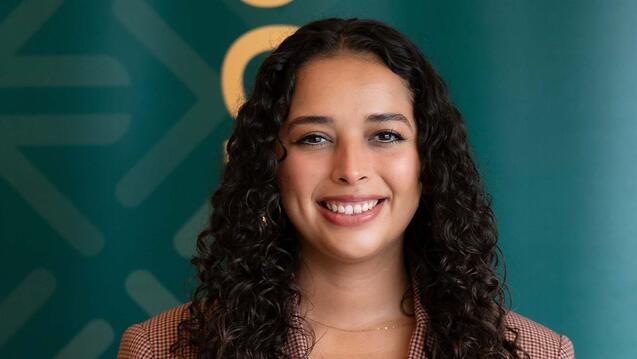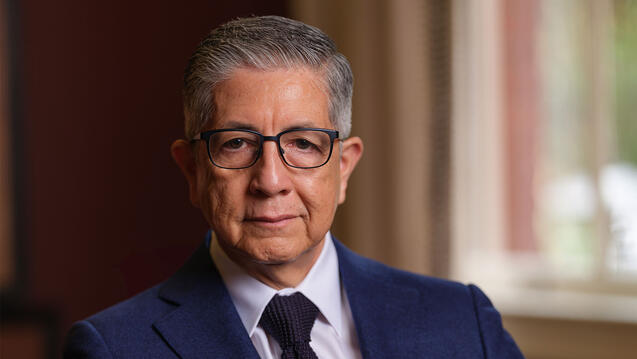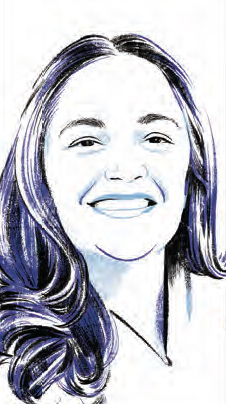
“I Will Well and Faithfully Discharge the Duties Upon Which I Am About To Enter”
When Nichelle Holmes ’10 took the oath of office on April 15, 2024, she joined more than 340 fellow USF law graduates who have served on the bench.
The Hon. Kinna Patel Crocker ’02

Sonoma County Superior Court
Sworn in: October 2023
Before the Bench: Worked as a family law attorney for 23 years in private practice, including founding her own firm, Crocker Law.
In a small-town courthouse in Greeneville, Tenessee, a 16-year-old Kinna Patel took the Oath of Allegiance and became a U.S. citizen. That experience, and the person in the black robe at the front of the room, struck a chord and, in part, set Crocker on her path to the bench.
What do you bring to the bench?
To become a judge, you have to have a specific judicial demeanor. When I was approached by colleagues to consider applying [for a judicial appointment], I think my calm demeanor is what stood out to them. As an attorney, I was very settlement-oriented in family law cases. My goal was to solve problems. I never wanted to add to issues that are already at a high level of stress and conflict.
A few months into the role now, what is your favorite part of serving as a judge?
I think there are two related aspects of the role that I really enjoy. For one, I'm seeing cases that I've never seen before, despite the many years I have practiced in this area. Really interesting cases, like a minor wanting to marry, that I had never dealt with in my practice. The other part is being able to dive into the law, to do the research, to learn that area, and to figure out what the right answer should be. I love digging into the law.
Are there days when you miss being a practicing attorney?
It's not often, but yes, there are times. I did a lot of adoption work for same-sex couples and secured parental rights for families such as mine. At the end of every proceeding when we got all the paperwork done, the families would send me a picture of the little ones who I helped connect them with. Anytime I was having a hard day, or I just needed a pick-me-up, I would look at all the photos of these babies and remind myself.
The Hon. Douglas Rodgers ’03
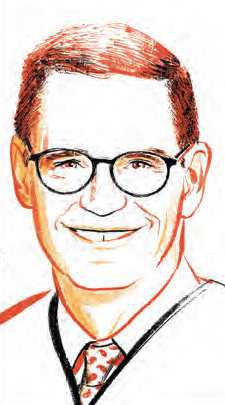
Tulare County Superior Court
Sworn in: June 2023
Before the bench: Served as a district attorney in Tulare County since 2003.
As a longtime prosecutor, Douglas Rodgers paid as much attention to judges he considered role models and mentors as he did to judges whose styles and temperament he did not care for. Having been approached throughout the years to apply for the role of judge, he said he felt ready to do so about 15 years into his career.
Tell us about the appointment process.
The appointment process is frustratingly opaque, but that’s by necessity. Much of the vetting goes on behind the scenes, so the applicant sees very little of the efforts made by the local bar associations, the state bar, and the governor’s office. All you can do once you submit your application is put your best foot forward, trust the process, and have faith that your file will be fully and fairly considered.
Qualities of a good judge?
A curious mind, a solid work ethic, and the ability to be decisive under pressure are important qualities to have as a judge. A thick skin also helps!
Any judges you particularly admire or hope to emulate?
I’ve always been a great admirer of Chief Justice Earl Warren. He came from humble beginnings, rose to the pinnacle of the legal profession, and used his moral authority to help reshape our nation for the better during some pivotal moments in American history. It’s easy to forget, given his accomplishments, what a divisive figure he was at the time. Despite tremendous pressure to maintain the status quo, he guided the Supreme Court to landmark decisions expanding the rights and freedoms of all Americans.
Changes you would like to see in the system?
Lawyers and judges have a duty to continue to diversify the legal profession, creating pathways to law school, the practice, and the bench that may have been closed to certain groups in the past. We can do that by being generous with our time and encouraging and mentoring those who might not otherwise consider pursuing a career in the law.
The Hon. Nichelle Holmes ’10
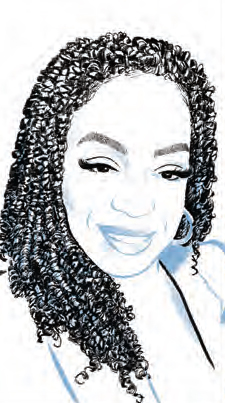
Contra Costa County Superior Court
Sworn in: April 2024
Before the bench: Served as a Deputy District Attorney in Contra Costa County for 12 years.
Nichelle Holmes first considered a judicial career after visiting the chambers of Justice Martin Jenkins ’81 with her USF Law Academic Support Program (ASP) cohort. She remembers the day as “pivotal” and credits both Justice Jenkins and Judge Saundra Brown Armstrong ’77 with sparking her interest in the bench more than 15 years ago. Today, Judge Holmes helps facilitate fireside chats with Justice Jenkins for USF’s Black Law Students Association to carry on the tradition.
Why become a judge?
I've always wanted to impact the community in a way where I bring my background and experience, not just my skin tone, but my lived experience.
What does judicial temperament mean to you?
For me, it's about treating everybody with respect, regardless of who they are. The attorneys, the people who appear before you. I'm not necessarily the smartest person in the room; I just happen to be the judge. I don't get to be less patient just because I'm the judge.
What is the best part of serving on the bench?
I think it’s the impact that the role has had on my family and my community. I’m from Richmond, and there haven’t been a lot of judges from Richmond. It’s a city with a lot of lower-income, at-risk youth. So just being a positive role model, I think for me that's been the best part.
How did USF prepare you?
Professors Richard Sakai and Carol Wilson were instrumental in my success as a lawyer and in passing the bar. They were just always there for me. Additionally, USF's Intensive Advocacy Program led by Doris Cheng is hands down one of the best in the state, maybe even in the country. The program and Doris were extremely instrumental in developing my trial skills and becoming a trial lawyer.
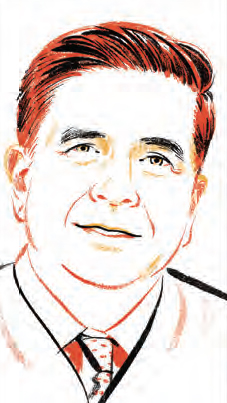
The Hon. Jesse Santana ’87
Sutter County Superior Court
Sworn in: November 2023
Before the bench: Practiced criminal defense with the firm he co-founded, Santana and Smith Law Firm P.C.
For Jesse Santana, his calling to serve on the bench was not immediate. About 20 years into his legal career and after working on more than 50 criminal and civil jury trials, Santana discovered a desire to serve as a judge. He credits the support of family, friends, and colleagues, including a number of fellow USF Law alumni, for supporting him through the appointment process.
What makes a good judge?
A good judge leaves the parties, witnesses, victims, and attorneys with the feeling that they were given a fair trial or hearing, regardless of the outcome. In general, a good judge has a diverse personal and professional background and experiences, a good work ethic, common sense, and is punctual, respectful, fair, compassionate, courageous, humble, and open-minded.
Is our criminal justice system just?
Yes and no. In general, our criminal justice system is one of the best in the world. However, our criminal justice system is rife with cases in which individuals were not treated fairly and justice was not done. It helps if prosecutors pursue justice rather than a conviction at all costs, and that a fair and openminded judge and jury preside over a case.
Tell me about your experience at USF School of Law?
I had a great experience at USF School of Law. I was co-chair of La Raza Law Students Association. I participated in the Advocate of the Year Competition and was a member of the Phillip C. Jessup-International Law Moot Court Team, the National Moot Court Team, and the National Appellate Advocacy Team. USF Law helped me in so many ways. I was inspired by a number of my professors, including Delos Putz, Judge Jeffrey Brand ... the list goes on. I also owe a debt of gratitude to the USF Law alums who helped me on my appointment to the bench.
What's your advice to lawyers who are thinking about becoming judges?
Work hard, learn the rules of evidence inside and out, do as many jury trials as you can, treat others the way you want to be treated, and give back to your community.
The Hon. Anne Costin ’08
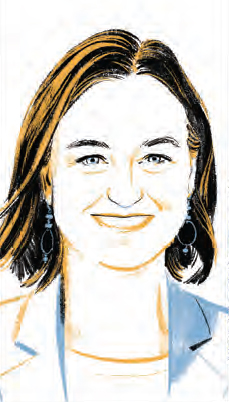
San Francisco Superior Court
Sworn in: February 2024
Before the bench: Represented employees in discrimination, harassment, and retaliation cases in private practice, including founding her own firm in 2013.
Each time Anne Costin exited a courtroom as a lawyer, she walked away thinking about the judge. Taking mental notes on the do’s and don’ts, she eventually realized she was destined for the bench.
What was the appointment process like?
Exhaustive. There are multiple rounds of vetting, with different committees interviewing lawyers you have worked with and had cases against. Each step of the way the net gets larger and questions deeper. Realizing that everyone you know is commenting about your skills and demeanor is quite overwhelming!
Which emotions, if any, belong on the bench and why?
I read a very interesting article on this very topic called “The Emotionally Intelligent Judge” by a professor at Vanderbilt Law School named Terry Maroney. It acknowledges that judges are of course not robots — and that at this point psychological research has pretty clearly confirmed that simply ignoring your emotions can have extreme negative consequences on your health. So: Be self-aware enough to recognize your emotions, think coherently about them, and regulate your response to those emotions to ensure that you can control how — or if — you express them while ensuring and projecting neutrality. Emotion is not the enemy of reason; they are interdependent.
Did anything surprise you when you became a judge?
Surprise: You have to buy your own robe! Unexpected: The code of judicial ethics places significant constraints on judges’ ability to participate in certain conversations and social events. I did not expect to be conducting ethical analyses of whether I could or should attend a party or listen to a lawyer friend tell me about the new case they are working on.
The Hon. Justin Glennleistikow ’04
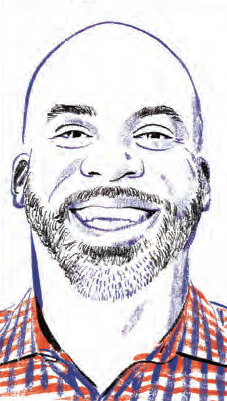
Orange County Superior Court
Sworn in: July 2023
Before the bench: Served as a public defender in Orange County since 2005.
Justin Glenn-Leistikow spent 17 years as a public defender before applying to serve as a judicial officer. This despite being approached by several judges over the years, including family friend and USF Law alumnus Justice Martin Jenkins ’81, who Glenn- Leistikow has known his whole life. Ultimately, it was their guidance, as well as the impact it would have on his two sons, ages 13 and 8, that gave Glenn-Leistikow the final push to apply.
As a career public defender, what do you believe you bring to the bench?
I've seen the courtroom from multiple positions, and I think it’s important to have different perspectives in there. And that's not to say that I see all of the angles, because I have blind spots as well; I think everyone has blind spots. And so you try to get as many different folks into a particular room who come from different backgrounds and have different life experiences so that the hope is that you can cover all angles.
What makes for a good judge?
Consistency. And treating everyone the same. And that might not mean that everyone enjoys the treatment that they're getting, and it might not make either party happy. But it's consistent.
Best part of being a judge?
I think the best part is the impact that I have on the folks who appear in front of me, whether it be the defendant or an alleged victim in a case.
Tell us about your experiences at USF.
As a student, my job was to come to this beautiful campus five or six days a week and to just learn. It was an amazing experience. I met a lot of great people and professors. But it was also a very difficult time, academically. Legal research and writing, that class demoralized me. But I was in the ASP program and Carol Wilson told me that I was accepted to the university because they believed I could do the work, and to not have imposter syndrome, and that I belonged. And I thank her from the bottom of my heart.
The Hon. Katherine Hansen ’00
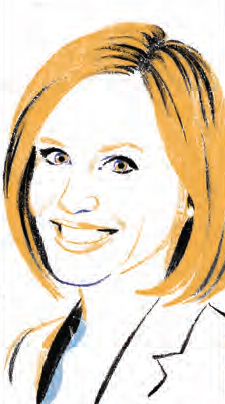
Santa Cruz County Superior Court
Sworn in: February 2023
Before the bench: Served as Santa Cruz Court Commissioner and a Deputy County Counsel for Monterey County, practiced as a plaintiff’s attorney beforehand.
Each of Katherine Hansen’s career choices was a stepping stone in a lifelong aspiration to serve as a judge. She built a broad skillset and diverse experiences by working in criminal law, as a plaintiff’s attorney, a legislative aid, a lobbyist, and eventually a court commissioner. Although the appointment process was “thorough and lengthy,” now–Judge Hansen believes that particularly today, “California has an outstanding approach to the way judges are appointed.”
What makes a good judge?
Patience, wisdom, clarity, integrity, compassion, dedication, fairness, openmindedness, humility, quiet strength, consistency, and grace.
What's your favorite thing about being a judge?
I am humbled by our ability to make an impact in a hands-on way to persons in our community. Judges have an opportunity and a responsibility to serve the public, and every day, we have a chance to make decisions that help people.
How did USF help prepare you?
Law school was very challenging for me, due to private, personal circumstances. I had a few professors who could see through that and see me as a whole person — and they believed in and encouraged me. I still think of their words of wisdom, as well as their temperament. Those professors or retired professors are Professor Honigsberg, Professor Adler, and Professor Freiwald.
What's your advice to lawyers who are thinking about becoming judges?
Anyone interested in becoming a judge should talk with a recently appointed judge and establish a mentor-mentee relationship. As judges, we want to grow our bench with the next generation of dedicated attorneys, so we are very open to this. Also, anyone interested in becoming a judge should be conscientious in their communications and conduct in their cases, and ensure that they lead and litigate with integrity and professionalism to develop an excellent professional reputation.
